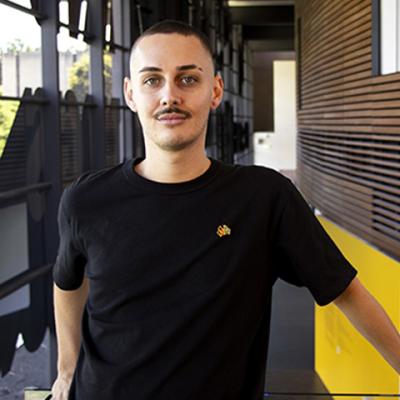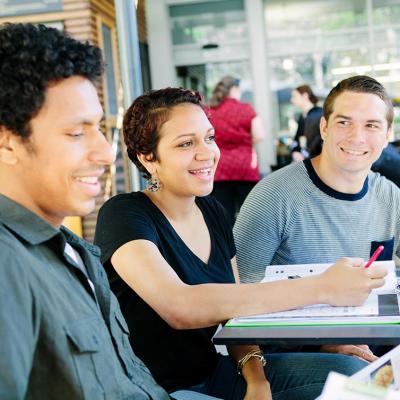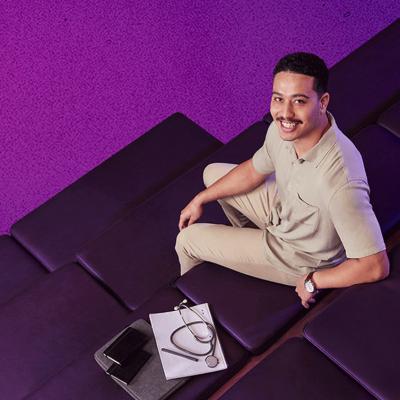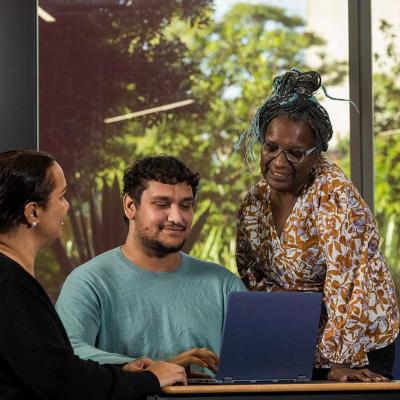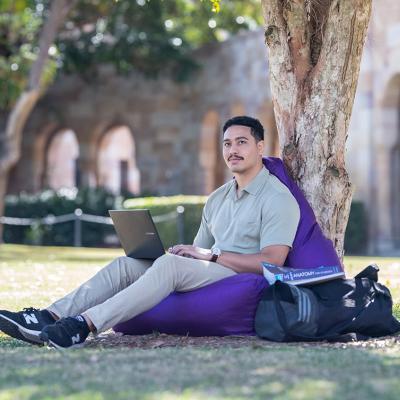University isn’t just about classes and exams. UQ students also get access to a wide range of opportunities to help with career preparation – internships, workshops, volunteering, global exchanges, student-staff partnerships, mentoring and more.
We asked some of our Aboriginal and Torres Strait Islander students and alumni how their education has prepared them for their careers. Here’s what they had to say.
How to prepare for your future career with internships
Adam Ford, a proud descendant of the Nyoongar people, studied a Bachelor of Arts, majoring in Art History. His courses, alongside an internship with the UQ Art Museum (UQAM), helped him develop both his practical skills and personal appreciation for the industry.
“Taking on studies at UQ helped me focus on my career goals, particularly in the field of Indigenous art history,” he says.
“It has provided me with the academic, professional and industry vernaculars that you really need to excel in this industry – not to mention foregrounding the cultural care and competency required when working with Indigenous artists, artworks and cultural objects.”
Adam is particularly excited about how his internship helped prepare him for the next steps of his academic journey – he hopes to progress into an honours program before pursuing his dream job as a curator or creative director.
“Academically it has meant putting my knowledge to practical use and getting to familiarise myself with an industry made up of individual persons who each possess certain strengths and affinities for different dimensions of our practice,” he says.
“It has meant getting to start my career and see it not only start but be put into overdrive.”
The beauty of an internship like this is that it doesn’t just provide valuable experience and skill development. It also allows students to explore their passions and discover how their interests can translate into a career after university.
For Adam, a creative soul who has been fascinated with history for as long as he can remember, that passion is Indigenous art.
“I have a particular love for the late Wiradjuri artist Harry J. Wedge, whose work I also own,” says Adam.
“I see something in his work not yet explored or explained in the canon, particularly around notions of the abject, of liminality, sites of transition and so forth.”
“I also love and have gotten the chance to work alongside Tony Albert, who was one of the featured artists in the UQAM’s proppaNOW exhibition. His long-recurring motif of aliens and UFOs I find fascinating and think there’s also something to connect there.”

Funnily enough, students often don’t know that opportunities like the UQ Art Museum internship exist at UQ until they’re already here.
“It was promoted via the art history courses and staff, and I was aware that it was available to do via classmates,” says Adam.
UQ students have access to a wide range of internships, practical placements and other employability development activities. Studying here is so much more than classwork and exams.
How else does UQ help Aboriginal and Torres Strait Islander students with career preparation?
Beyond internships, all UQ students have access to:
- global experiences (semester-based exchanges and short-term experiences during semester breaks)
- practical placements and other Work Integrated Learning (WIL) opportunities
- Ventures (UQ’s hub for entrepreneurs and startups)
- leadership programs and employability workshops
- short research programs over summer or winter
- mentorships and student-staff partnerships
- volunteering opportunities.
Aboriginal and Torres Strait Islander students can also access tutoring assistance and student support through UQ’s Aboriginal and Torres Strait Islander Studies (ATSIS) Unit. As part of the Indigenous Tutorial Assistance and Retention (ITAR) Program, Indigenous students can request one-on-one academic tutoring or join a small subject-specific study group.
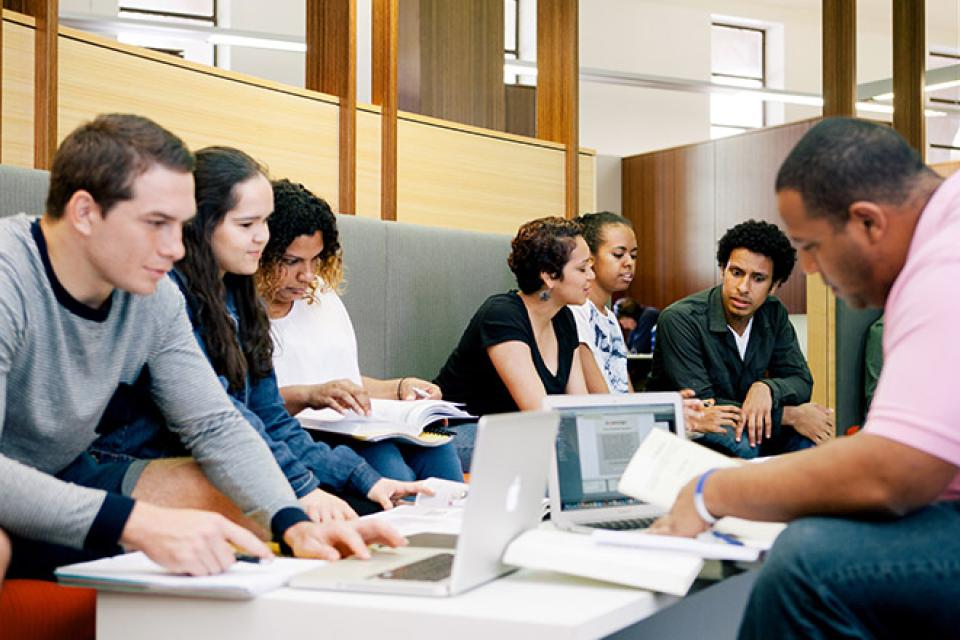
This program – and the ATSIS Unit in general – is here to help you perform at your best in every course and complete your program with the confidence to step into your career.
Otis Carmichael, a Waanyi man, is one of the many students who has benefitted from the tutoring program – particularly during the first year of his Bachelor of Information Technology.
“The ITAR tutorial service at the ATSIS Unit was really helpful early on when I felt a bit out of place on the tech side, and all the staff have been so supportive,” he says.
Otis was also the 2021 president of Goorie Berrimpa, an Indigenous student collective for Aboriginal and Torres Strait Islander students. This collective hosts social and sporting events, allowing students to make new friends while also establishing a support network and professional connections with other Indigenous students.
One of the collective’s members, Hannah Allan, a proud Burubirangal (Dharug) woman, says the group has enriched her student experience at UQ.
“Both Goorie and the Aboriginal and Torres Strait Island Studies Unit – which is filled with amazingly kind and helpful staff – are wonderfully supportive and motivating spaces,” she says.
Here at UQ, we strive to ensure all Indigenous students have the opportunity to connect and thrive in these supportive communities, so they graduate with the skills, contacts and resources to gain employment in their field.


